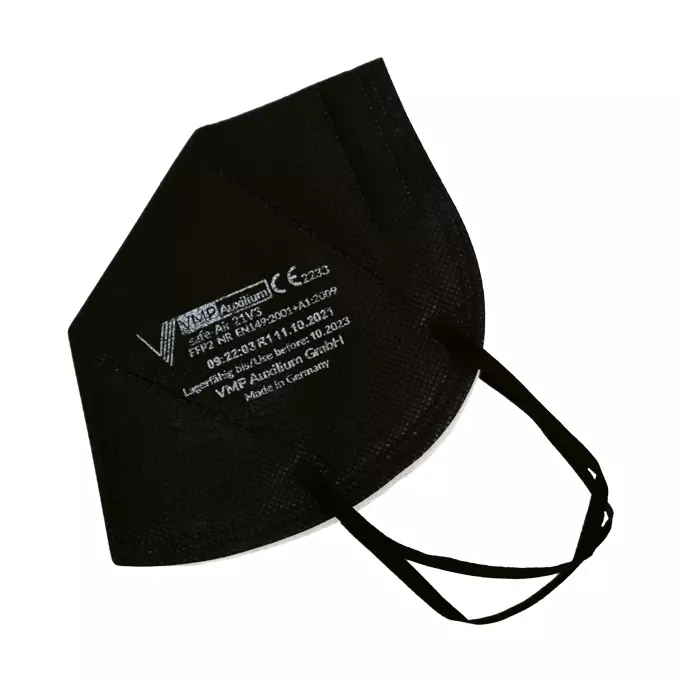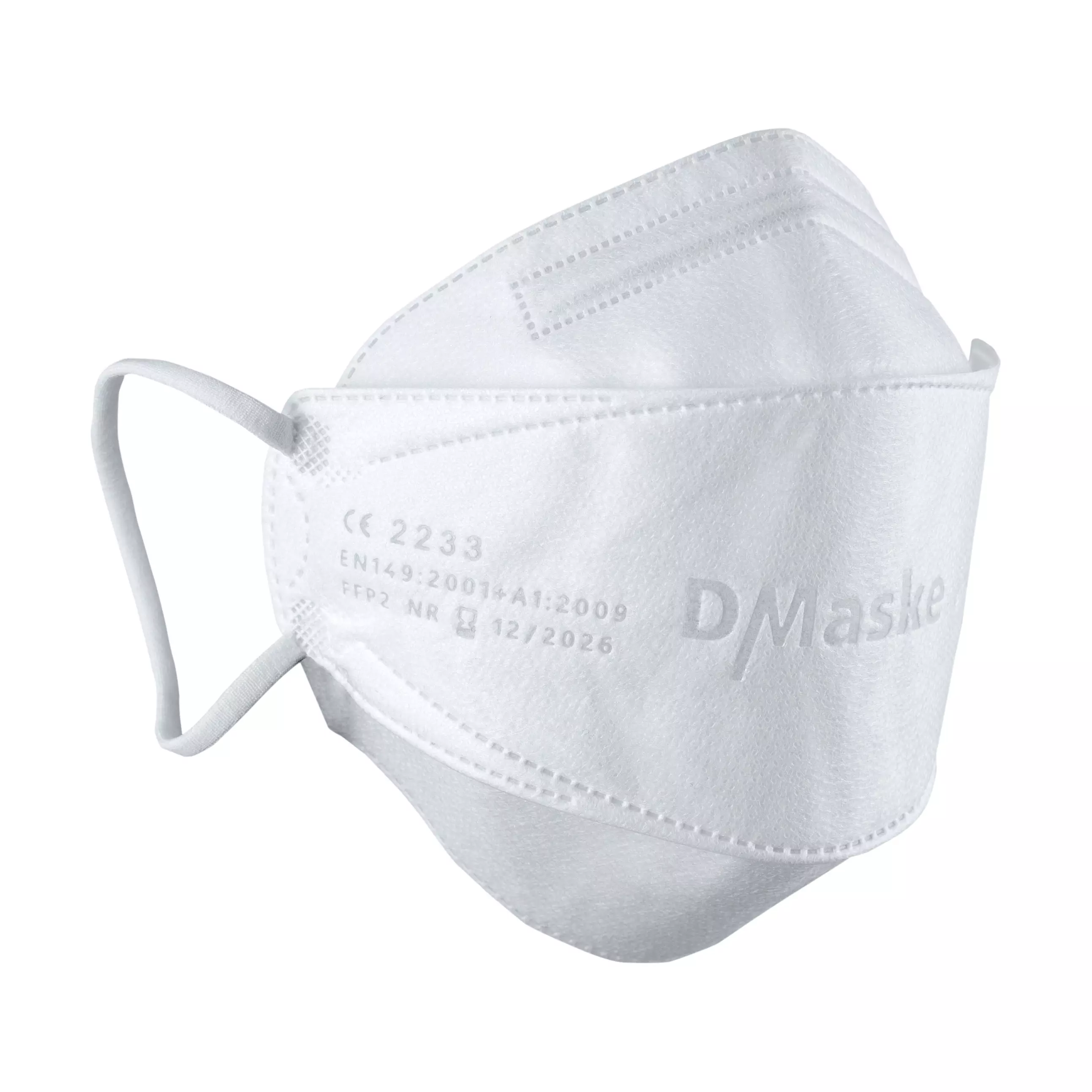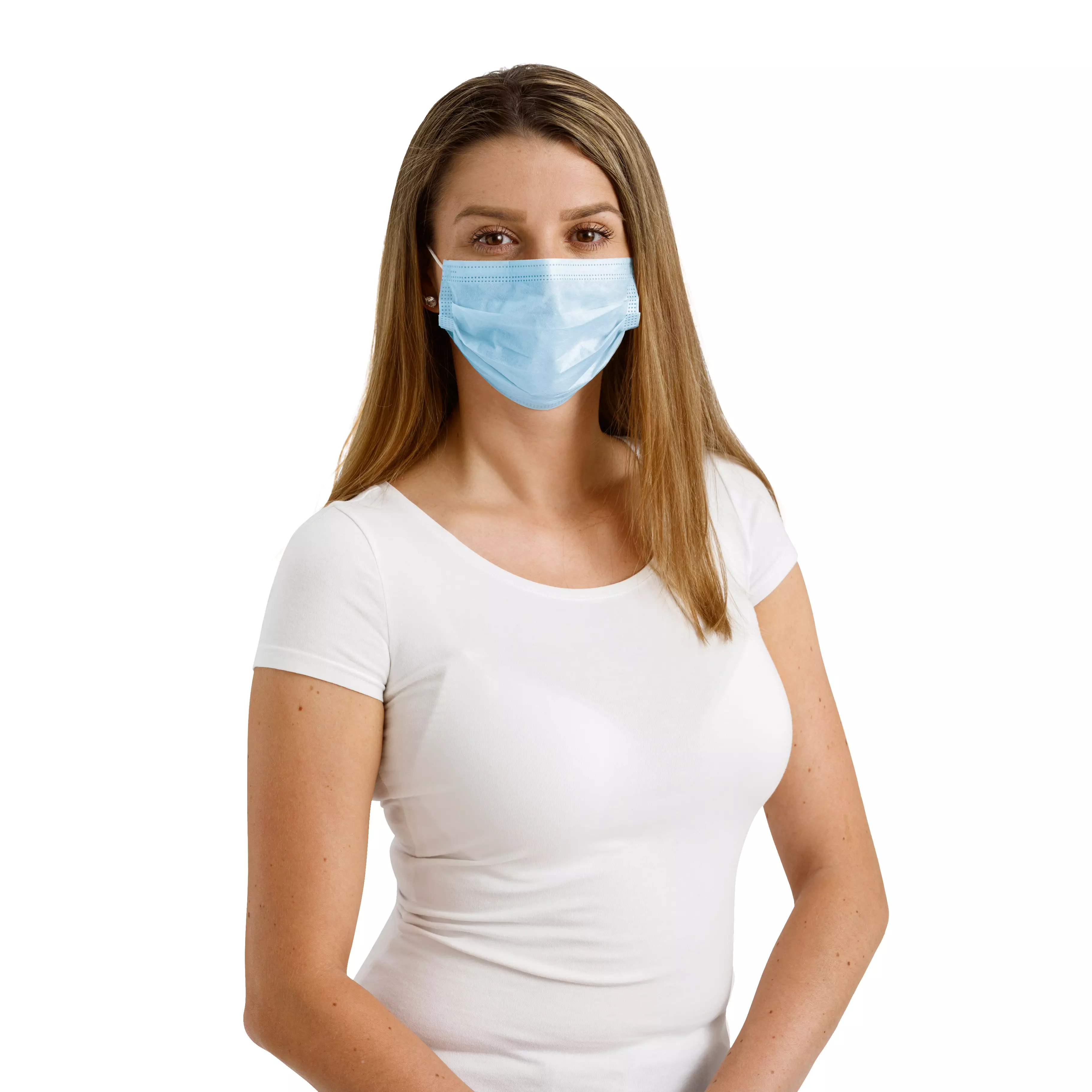Face masks: masks as an everyday companion
Content: 5 piece (€0.67* / 1 piece)
Available, delivery time: 1-3 days
Content: 5 piece (€1.00* / 1 piece)
Available, delivery time: 1-3 days
Content: 50 piece (€0.36* / 1 piece)
Available, delivery time: 1-3 days
By wearing masks in everyday life, you are making a meaningful contribution to reducing the spread of viruses. Masks create a visual awareness of social distancing and also reduce the speed at which droplets are expelled - for example when coughing - and the flow of air. This allows you to protect yourself and those around you.
Face masks and respirators for everyday use
In addition to their professional use, face masks and respiratory protection masks are increasingly finding their way into everyday life. Whether in the office or when shopping - the chances of infection increase, especially in the cold seasons. This makes effective protection of the mucous membranes in the mouth and nose all the more important. FFP2 respirators protect your own well-being and the health of others.
FFP2 respirators, 3-layer face masks or cotton face masks - what are the differences?
FFP2 mask: FFP2 respirators have above-average filter performance. 94 % of the particles contained in the air are filtered down to a size of 0.6 nanometres. They protect against solid and liquid aerosols. This protects the wearer and other people. Our FPP2 respirators are tested and certified in accordance with the EN 149:2001 + A1:2009 standard. Of course, all of our FFP2 masks carry CE labelling.
3-layer face mask: A 3-layer face mask is often used in the medical sector and protects people from smear and droplet infections. Our 3-layer face mask is tested and certified in accordance with EN 14683:2019. A 3-layer face mask does not protect the wearer from viruses and infections.
Cotton face mask: A cotton face mask is a makeshift mask that is generally neither a medical device nor a PPE product. The advantage of simple cotton face masks is that they can be reused - the masks can usually be washed in the washing machine at 60° degrees.



